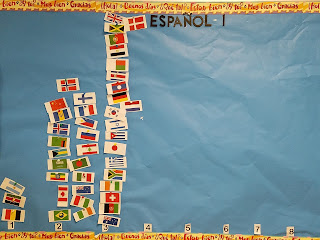This I Believe
“You would do the same if I were a guest in your country,” said a middle-aged Chilean man to me as we stood along a busy highway at night waiting for a bus to arrive that would take me back to Santiago from Linares, a city four hours to the south. You see, when I bought the round-trip bus ticket in Santiago to travel to visit a host family with whom I had lived some months before, I thought that I would be departing from Linares at 7:00 p.m.; however, the bus was starting its route at 7:00 p.m. and would not arrive in Linares until closer to 9:00 p.m. Now, my host dad was waiting outside in the cold with me for the bus to arrive even though I told him that it was not necessary because he felt an obligation to take care of me, seeing as I was a foreigner in his country.
I still remember that night over a decade ago as if it were yesterday. At the time I felt a sense of guilt because, quite frankly, I was not sure that I would be doing the same if our roles were reversed in the United States. Now, I strive to be the person that my Chilean host father proved to be that night along the highway in Southern Chile. I strive to put other’s needs first even when it is not convenient or when I simply do not have the time. As a learning leader, not only do I hope that my example inspires others to behave similarly, but I also hope that what students are learning in the classroom helps them to be good people, good citizens of the world.
I believe that a primary responsibility of educators is to prepare students for life in a global community. Yes, we want to prepare them for college and careers, but all learning is for naught if we are graduating bad people, bad citizens. Whether we like it or not, we educators are role models—not just for students but for our colleagues, parents, and other members of the community. Even if we do not have a formal leadership role, educators are community leaders. As such, we need to be conscious of our words and actions because these will resonate with others far longer than any content we teach in the classroom.
In short, I believe that we as educators need to be good people and to teach students to be good people, as well. Just as my Chilean host father took care of me years ago, we need to teach students to take care of others. Young children learn the Golden Rule early on, and it guides their behavior. Too often, adults do not stop to consider how they would want to be treated in a certain situation, and as a result, selfish decisions are made. True learning leaders are not without flaws. Even so, they are committed to being good people, good citizens, and good community role models. In this way, they ensure that students graduate ready for life.


Comments
Post a Comment